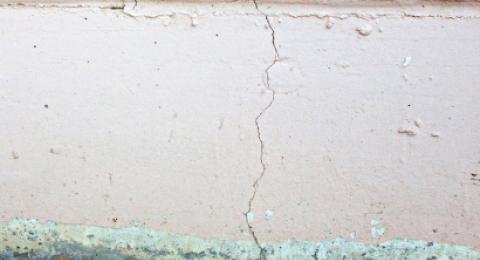Wet basements and foundations: 5 things every realtor or homebuyer should know
You don’t need to live in Venice to suffer the impact of a wet basement or foundation. After all, Canada’s extreme temperatures cause issues for even the most solidly laid foundation.
Ultimately, water is the biggest contributor in residential foundation movement. Causing concrete foundation damage that deteriorates property value in turn, most foundations are repairable but it comes at a high price.
Therefore, it’s important you learn about wet basements and foundations, and the warning signs when buying or selling a home. Here are 5 must knows for every realtor or homebuyer.
Why do basements leak?
The soil surrounding foundations is loose post-excavation. Consequently, it’s easier for water to percolate through the soil and accumulate. This loose soil is packed against basement and foundation walls when constructed. As water accumulates in the soil, it then seeps into walls causing damage.
How can I spot wet basement and foundation damage?
Structural concerns include cracks, bowing, and honeycombing or flaking. Most poured concrete foundations have typical shrinkage cracks (less than 1/8 of an inch), which are caused by concrete curing/drying. Par for the course, they are still basement openings that require sealing from water leakage. Any crack, large or small, requires attention.
Sideways forces being exerted on a foundation cause bowing. When there’s excess moisture in the soil, the leaning of foundation walls can occur. Honeycombing or flaking is when the aggregate in concrete is not sufficiently compacted and therefore more susceptible to water damage.
Why is there basement mould?
Ultimately, mould grows in damp, wet, and poorly ventilated spaces. Most basements suffer moisture problems during their lifetime. Damp basement walls and basement mould suggests a leaky foundation. Welfare Canada found that 38% of Canadian homes had indications of excessive dampness or mould.
How can I fix a wet basement and foundation?
Wet basement solutions include waterproofing methods like sealers, weeping tiles and membranes. Sealants and coatings provide a line of defence against water penetration whereas tiles prevent basement flooding. Elsewhere, adding gutter extensions, reshaping the landscape, repairing footing drains, installing a curtain drain or pumping water can help too.
Can AmeriSpec provide basement inspections?
Our qualified inspectors can help identify the source of moisture in basements and recommend simple, low-cost solutions to address the problem. Please note, while conditions may be pointed out during a home inspection, it is virtually impossible for inspectors to give a conclusive opinion on the worsening of conditions over time.
AmeriSpec has over 30 years of
home inspection industry experience. When you need to take the next step, call our team at 866-284-6010.

